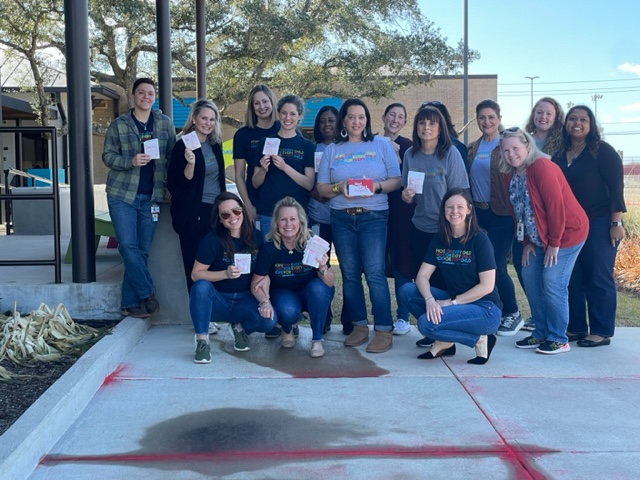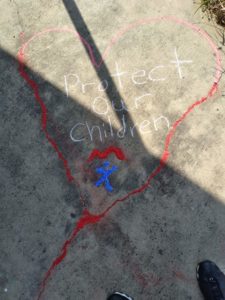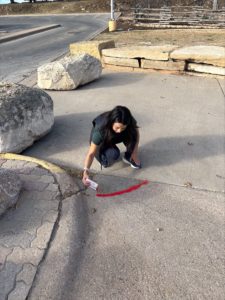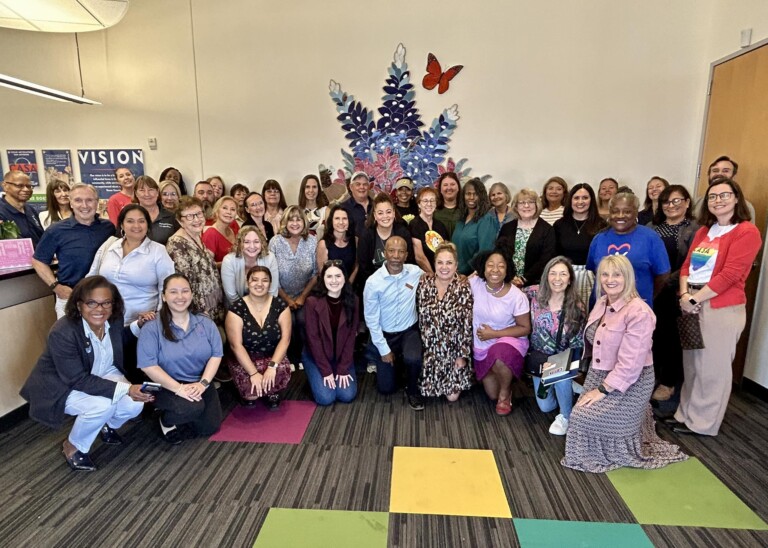CASA Network Mobilizes for Red Sand Project

In January, for National Human Trafficking Prevention Month, local CASA programs and their community partners across the state took part in the Red Sand Project.

Red Sand Project is a participatory artwork installation created by Molly Gochman that uses sidewalk cracks to create opportunities for people to question, connect and take action against vulnerabilities that can lead to human trafficking and exploitation. Participants raise awareness in their communities by pouring red sand into the cracks of sidewalks, parking lots and driveways–bringing attention to the survivors who often “fall through the cracks.” Today, Red Sand Project actions have been done in all 50 states and in 70 countries, with more than one million participants.
Children and youth in foster care are at a heightened risk of trafficking and exploitation. Some of the risk factors include recent migration relocation, substance use, mental health concerns, involvement with the child welfare system, running away and experiencing homelessness. Every child in the foster care system possesses at least one of these risk factors—and the fact is most of them grapple with many. It is up to all of us to be vigilant and help keep these children safe.
Check out more photos from CASA programs’ Red Sand Project installations!

CASA participated in this project as part of our anti-child trafficking (ACT) work: CASA ACTs. CASA ACTs is a call to action for the CASA network to do more than “see something, say something” (a common phrase in the anti-trafficking movement), and to ACT. With CASA ACTs, we aim to support the local CASA programs in educating, protecting and providing skilled support. From identification of children and youth who are at risk, to advocacy for young survivors, CASA volunteers can take concrete action.
Within the next few weeks, Texas CASA will release Defensa de los jóvenes afectados por el tráfico sexual: Guía para voluntarios y personal de CASA en Texas. Esta guía en profundidad va mano a mano con un curso gratuito de e-learning que se ofrece actualmente en el Texas CASA Learning Center llamado Defensa de los niños y jóvenes explotados sexualmente con fines comerciales (CSEY)).


